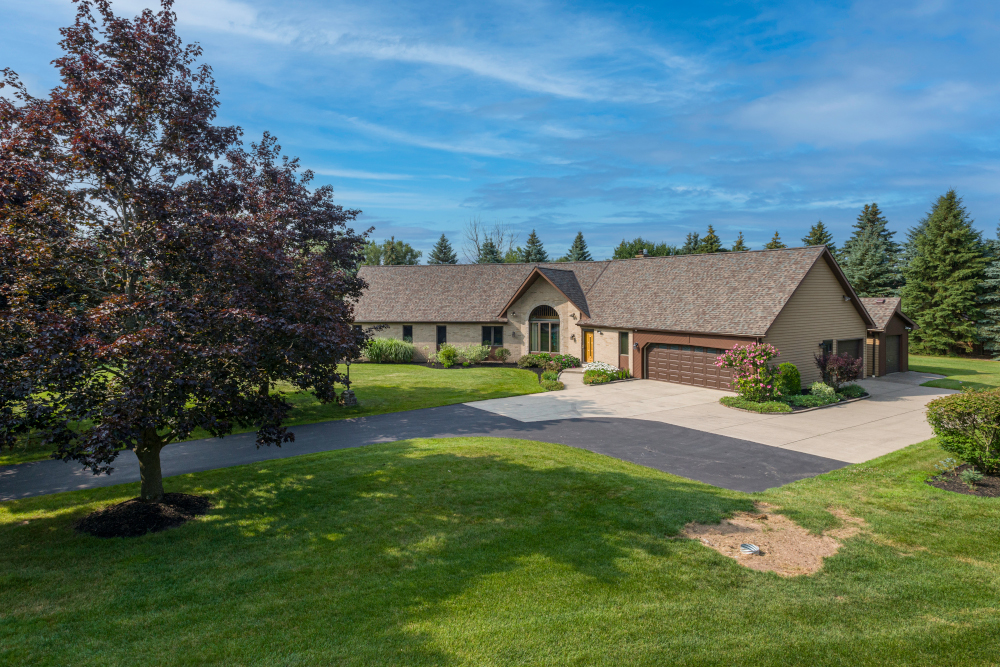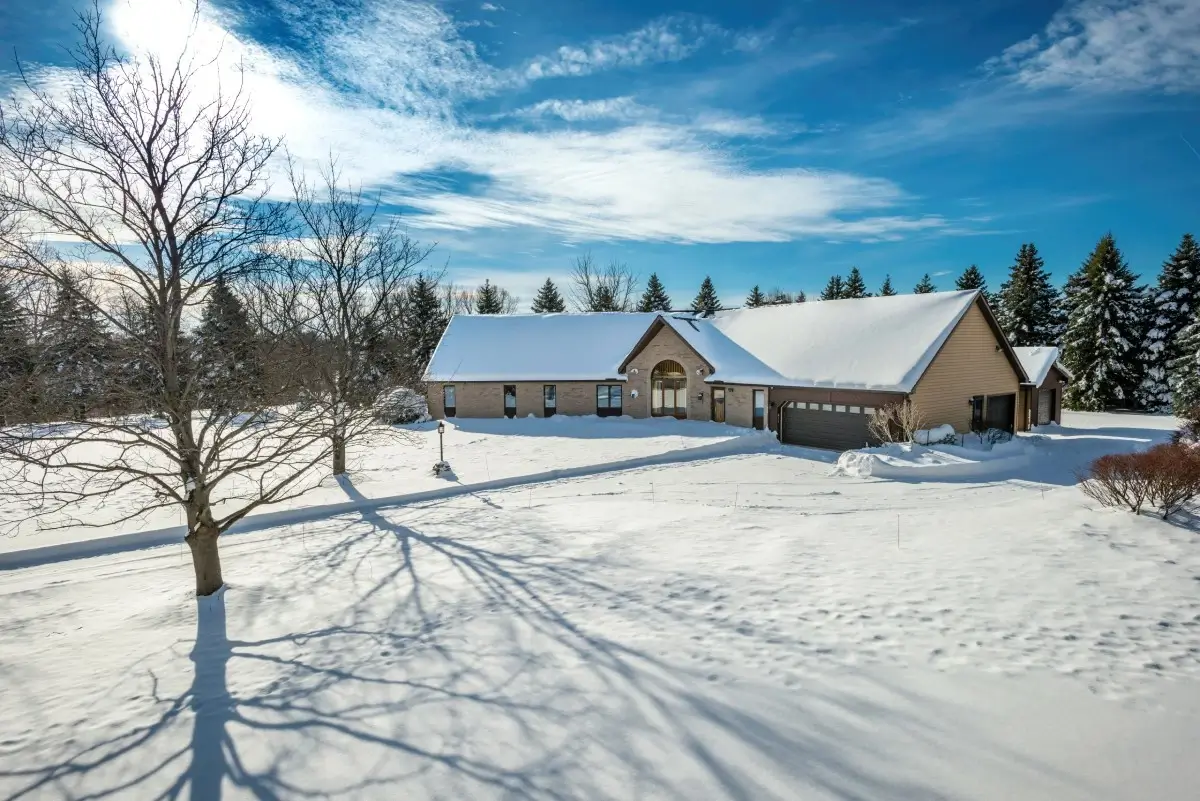As a homeowner, you’ll be responsible for maintaining your property and keeping it in good shape. This often means bringing in professional roofers or other contractors to conduct repairs or routine maintenance.
A common misconception among homeowners is the assumption that their insurance policy provides comprehensive coverage for uninsured contractors working on their property. However, most homeowner’s policies do not cover personal injuries or property damage caused by uninsured contractors.
This can expose you to legal liabilities as well as unforeseen expenses and other logistical headaches. Therefore, you need to carefully assess the ins and outs of your homeowner’s insurance policy.
Additionally, you should always ensure that your contractors have both general liability and workers’ compensation insurance. Let’s take a closer look at these potential coverage gaps and how you can avoid them.
The Role of General Liability and Workers’ Compensation Insurance
Any contractor you hire should have both general liability and workers’ compensation insurance.
General liability insurance serves as a safety net for the homeowners. It provides coverage for any property damage that occurs during the course of work and protects homeowners from unexpected expenses. For example, if a contractor inadvertently damages your siding while working on your roof, the insurance policy would cover the cost of repairs.
Risks and Consequences of Hiring Uninsured Contractors
Homeowners should never hire uninsured contractors for repairs or maintenance. Although it may not seem like a big deal, there are many potentially negative consequences and hidden risks of hiring uninsured contractors.
A. Property Damage
Imagine you’ve hired an uninsured contractor to repair your roof. The contractor makes an error, leading to a leakage problem. Over time, this leakage causes extensive damage to your home’s interior, including the ceiling and the floor.
In this situation, you’ll face the prospect of paying for these unexpected repairs out of your own pocket. There’s also the cost of fixing the original roofing issue, which remains unresolved. Most uninsured contractors do not have the financial capacity to cover damages like these, putting the responsibility on the homeowners.
B. Personal Injury
There’s also the possibility of homeowner liability for a contractor injury. Suppose your uninsured contractor’s employee is seriously injured on your property, falling off a ladder and sustaining injuries that lead to long-term disability. This unfortunate event opens up a Pandora’s box of legal and financial complications for the homeowner.
In addition to the potential for high legal defense costs, there’s also the possibility of losing the lawsuit. If this happens, the court ruling will require the homeowner to pay a substantial amount in damages.
In both scenarios, the cost burden falls heavily on the homeowner due to the lack of proper insurance. While hiring uninsured contractors may seem cheaper, these savings can quickly evaporate as unexpected costs pile up and potential litigation looms.
Limitations of Homeowner’s Policies
Homeowner’s insurance policies typically offer limited, if any, coverage for damages or liabilities linked to uninsured contractors. These policies are primarily designed to cover personal liability and property rather than any issues associated with professional work performed on the property.
While it’s possible to purchase additional coverage as a rider to the policy, this is a patchwork solution. It’s safer and more efficient to ensure that all contractors working on your property carry appropriate general liability and workers’ compensation insurance.
Benefits of Hiring Insured Contractors
If you need to conduct repairs or maintenance on your property, there are many benefits that come with hiring an insured contractor. Most notably, it offers financial protection. When a contractor has the proper insurance coverage in place, homeowners are shielded from unexpected costs.
Additionally, insured contractors tend to demonstrate a higher level of professionalism and are more likely to adhere to local licensing requirements. Insurance is usually a prerequisite for obtaining professional licenses, which signifies the contractor’s commitment to ethical practices and ongoing professional development.
Most importantly, hiring insured contractors provides peace of mind. You’ll feel more confident in their work knowing that you’re protected against unforeseen mishaps.
Verifying Contractor Insurance
Before starting any project with an independent contractor, verify their insurance coverage. Ask them directly for proof of both general liability and workers’ compensation insurance. Specifically, ask directly for a Certificate of Insurance directly from their insurance agency. This will provide things like policy numbers, coverage limits, and validity dates.
Contractor Insurance FAQs
Does home insurance cover uninsured workers?
Typically, homeowners insurance does not cover injuries to uninsured workers. This is why workers’ compensation insurance is so crucial for contractors.
Can an uninsured contractor sue a homeowner?
Yes, if an uninsured contractor or their worker is injured on your property, they could potentially sue for damages.
What happens if a contractor doesn’t have insurance?
Without insurance, any damages caused by the contractor’s work or injuries to the contractor’s employees could become the homeowner’s financial responsibility.
What happens if a handyman gets hurt on your property?
If the handyman doesn’t carry workers’ compensation insurance, they could potentially sue the homeowner for medical expenses and lost wages.
What if a contractor gets hurt on my property?
If the contractor doesn’t have workers’ compensation insurance, you could be held liable for their medical costs and potential legal expenses.
What to do if a contractor damages your property?
If your contractor damages property but has general liability insurance, this will cover the cost of damages. If not, you might have to pay for repairs yourself or seek legal recourse.
Will homeowners insurance cover if a contractor leaves the job unfinished?
Homeowner’s insurance usually doesn’t cover incomplete work by contractors. This is why it’s so important to have a solid contract in place to provide recourse in these situations.
Hire an Insured Roofing Contractor
Before you start any home improvement project, learn what your homeowner’s insurance does and does not cover. Hiring a contractor without insurance puts you at risk for unexpected financial and legal consequences, which is why you need to hire a contractor with both general liability and workers’ compensation insurance.
If you’re in need of home repairs or maintenance in Buffalo, New York, William C Rott & Son is here to help. We’ve been in business for over 100 years and take insurance coverage and professionalism very seriously. We’ll get your roof, windows, siding, or gutters repaired in a safe and cost-effective manner.
Reach out to us to learn more or get an estimate.




